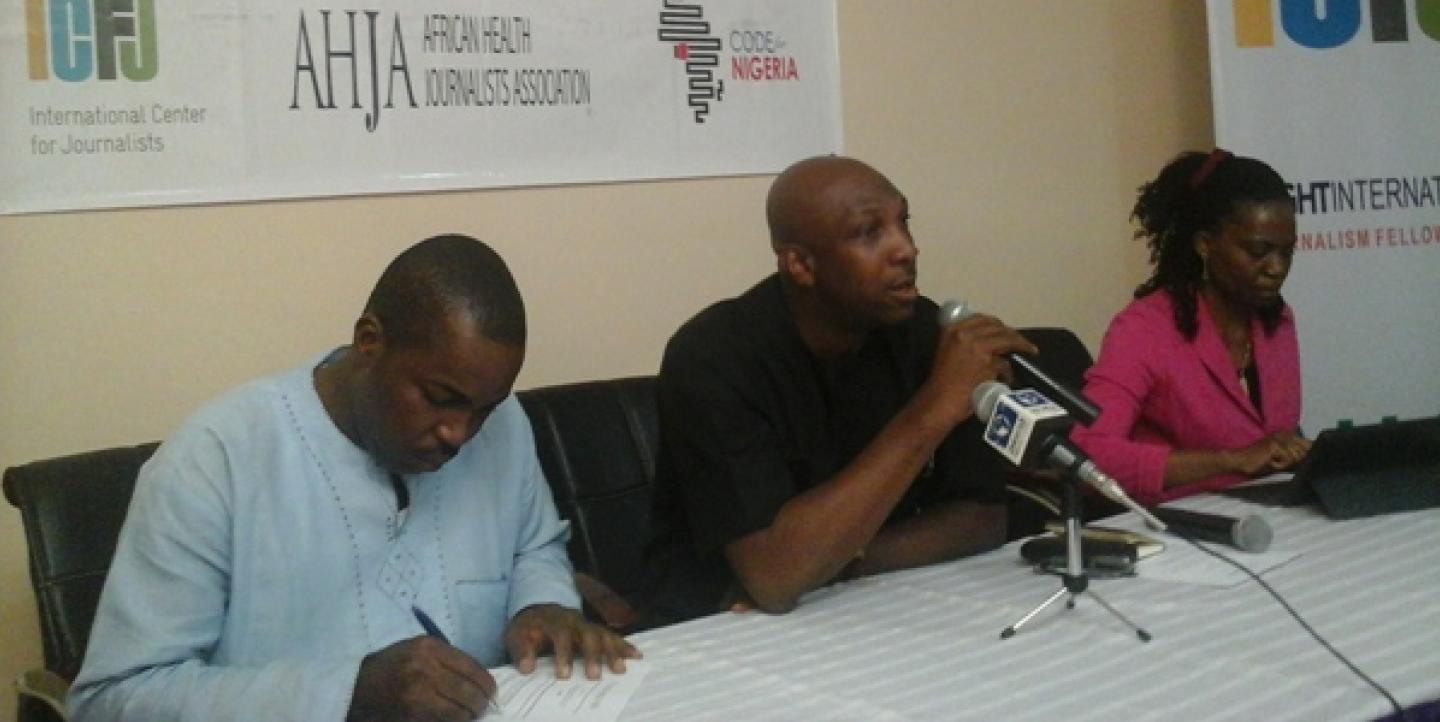Now that news reporting is no longer simply a matter of journalists deciding what they think the public needs to know, the mainstream media must make the shift from just reporting about news events to exploring ideas that move the audience to think and act.
Nowhere is that more true than in health coverage, where locally relevant engagement with the news can help individuals and communities identify their health priorities and have a conversation, offline and online, about solutions that can make a difference in their lives. Civil society organizations should be key partners in the effort to engage and inform people about personal and public health.
The ICFJ/HALA Nigeria Health Project, on which I collaborate as an ICFJ Knight International Journalism Fellow, aims to strengthen news reporting in Nigeria that helps people engage with and act on health information.
As my HALA colleagues and I prepared to launch the project in the spring, I visited and spoke with representatives of several health-focused civil society organizations based in Abuja and Lagos, the country’s two largest cities. I've also talked with many reporters around the country. The two groups share important goals, and it’s time for them to join forces to raise news coverage and conversations about health to a higher level.
The media’s role in improving health information and outcomes
The media are essential for empowering the public with information about health. According to a recent ICFJ/HALA Nigeria health project survey report, most Nigerians get their health information from news media. So journalists have a duty to be credible and responsible handling information presented to the public.
But in Nigeria and other parts of Africa where most reporters are poorly paid, they often feel justified in taking shortcuts by accepting and using ready-made content from health advocacy groups. Here are some ideas about how to change that.
Civil society’s role
For their part, health advocacy groups are often eager to “get the word out” about their focus issue, validate the importance of their issues of concern, or impress their donors by getting stories placed in the media. To simplify the process, they often provide ready-made content to reporters, complete with quotes from their own officers.
Such outreach to journalists and news organizations can seem like a win-win for everyone. Overworked, underpaid reporters get easy content. Civil society groups get their content and message out via the media. The question is whether the citizens are well-served by such pre-packaged information.
They aren't. The information goes just one way, instead of involving people and communities to find solutions to public health problems. The content is also sometimes one-dimensional. Using ready-made content in place of original and factual reporting can undermine the credibility of reporters and news organizations that use it.
Use ready-made content as a starting point, not as a news story
Reporters should not accept pre-packaged information wholesale. When ready-made content is published as news because of the provider’s expertise on a subject, reporters may compromise the public trust.
Ready-made content isn't without value. It can be useful as a starting point for a story. It can include leads to relevant sources of information. And it can help save time by pointing an angle for the story especially when it involves breaking news. Journalists can moderate spin by probing the underlying news value and seeking out more than one source before publishing any information provided by health advocacy groups.
Move beyond “getting the word out"
Development reporting doesn't need to take the form of prepackaged news, event stories, or spin as it so often does in the region.
Instead, civil society and news media interests can converge around information that connects the public with locally relevant information. Together, media and civil society groups can engage in the public in talking about and improving health care systems and services.
Civil society organizations can strengthen news reporting by facilitating access to senior health professionals and champions, not just government officials and medical doctors who are the preferred news sources for Nigerian health reporters. Civil society can also facilitate media access to data that can help provide context on important health stories.
The news media and civil society groups should work together to provide deeper information to the public and to make it easier for all of us to talk about what works—and what doesn't—in improving health.
Cece Fadope is an ICFJ Knight International Journalism Fellow in Nigeria.
Photo of Hala Nigeria workshop courtesy of Cece Fadope.

